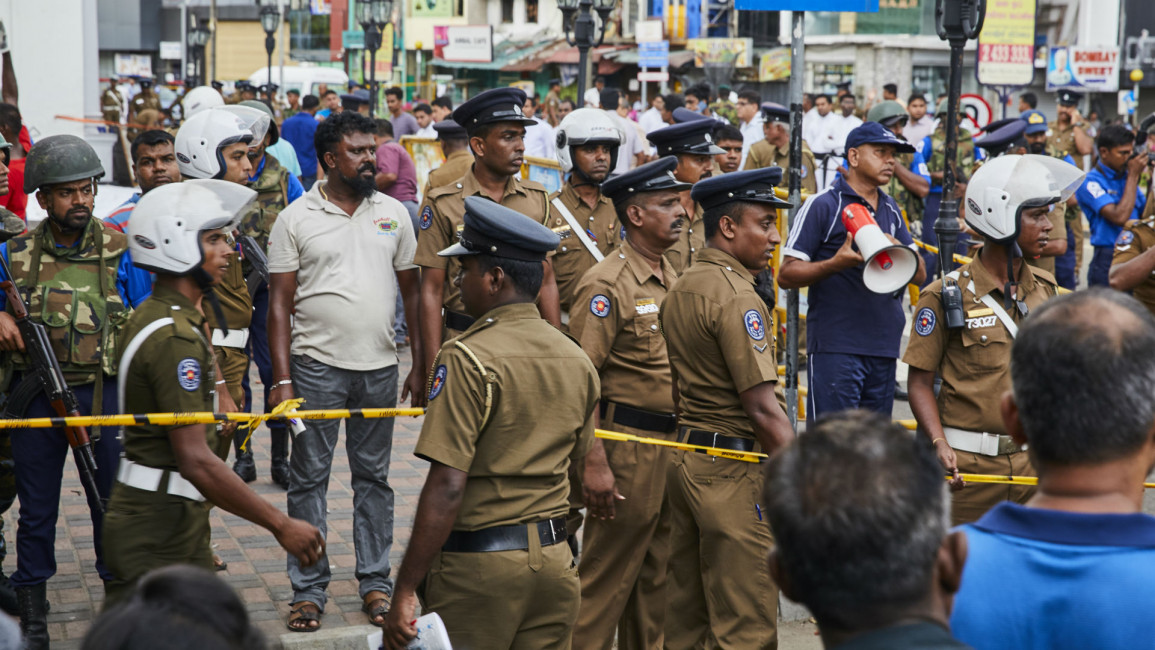Colombo detains Syrian following Easter Sunday blasts, as death toll rises to 321
The Syrian was among 40 others arrested since Sunday when the six coordinated bombings shook Colombo, killing more than 300 people and wounding 500 others.
"He was arrested after the interrogation of local suspects," one of the sources said.
The revelations came as authorities confirmed the death toll increased to 321 on Sunday, as emergency law giving police extensive powers to detain and interrogate suspects without court orders was imposed on Monday.
Meanwhile, foreign agents including the FBI and British counter-terrorism officials were being sent to Sri Lanka to assist in the ongoing investigation into the deadliest violence since the end of the country's long-running civil war a decade ago.
No group has yet confirmed responsibility for the attack, however US intelligence sources believe it bore the hallmarks of the Islamic State group, although they were cautious because the militants is usually quick to claim attacks.
Footage that was seen for the first time showed one of the bombers entering the Gothic-style St. Sebastian church wearing a heavy backpack. Eerily, the man patted a child on the head before entering the church and killing dozens in the attack.
Earlier on Monday, the Sri Lankan government blamed Islamist extremist group called the National Thowheeth Jama'ath (NTJ) was believed to be behind the deadly suicide bomb attacks, government spokesman Rajitha Senaratne said.
Senaratne, who is also a cabinet minister, added that the government was investigating whether the group had "international support".
"We don't see that only a small organisation in this country can do all that," he said.
"We are now investigating the international support for them, and their other links, how they produced the suicide bombers here, and how they produced bombs like this."
Documents seen by AFP show Sri Lanka's police chief issued a warning on 11 April, saying that a "foreign intelligence agency" had reported NTJ was planning attacks on churches and the Indian high commission.
Not much is known about the NTJ, a radical Muslim group that his been linked to the vandalising of Buddhist statues.
Top Muslim leaders in Sri Lanka demanded "maximum punishment" for the perpetrators of suicide bomb attacks on Christian churches and luxury hotels .
"We urge the government to provide security to all religious sites and to give maximum punishment to everyone involved in these dastardly acts," said the All Ceylon Jamiyyathuul Ulama, or council of Muslim theologians.
"On behalf of the Sri Lankan Muslim community we offer our condolences to the people of Christian faith and extend our hands of friendship in solidarity."
The top theologians added in a statement that they had met the Archbishop of Colombo, Cardinal Malcolm Ranjith following the attacks on three churches celebrating Easter mass.
The National Shoora Council, a group of 18 Muslim organisations also expressed condolences and said the government must not "leave any stone unturned in its efforts to apprehend the culprits whoever they may be and to whatever part of the populace they may belong to".
Ethnic and religious violence has plagued Sri Lanka for decades, with a 37-year conflict with Tamil rebels followed by an upswing in recent years in clashes between the Buddhist majority and Muslims.
Follow us on Twitter: @The_NewArab



